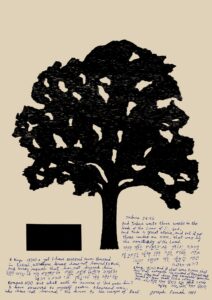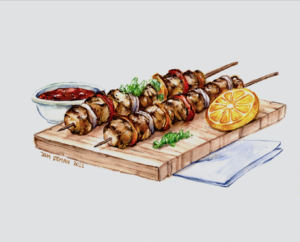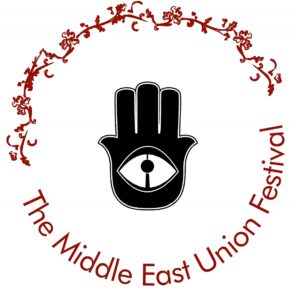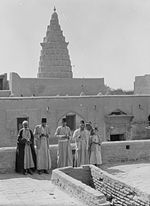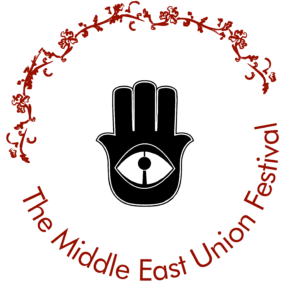 Kann und darf man aus dem heutigen Berlin einen in Frieden und Gleichheit geeinten Nahen Osten imaginieren?
Kann und darf man aus dem heutigen Berlin einen in Frieden und Gleichheit geeinten Nahen Osten imaginieren?
Das MIDDLE EAST UNION Festival lässt, online und verteilt auf Veranstaltungsorte in der ganzen Stadt, diese Vision zum Greifen nah erscheinen – mit Literatur, Diskurs und Musik, mit Performance, Poesie und feministischen und queeren Diskussionen.
Kuratiert von den israelischen Schriftsteller*innen Mati Shemoelof und Hila Amit und der palästinensischen Umweltaktivistin Alaa Obeid wagt das Festival ein mutiges künstlerisch-politisches Experiment: die Proklamation einer kulturellen Vereinigung des diffus kartierten Nahen Osten.
Auf die Eröffnung im BABYLON mit einem Gründungsauftakt, einer Diskussion und dem Konzert einer iranisch-israelischen Musikgruppe folgen in den darauffolgenden Tagen zahlreiche Veranstaltungen – online, im Literarischen Colloquium Berlin und in der Novilla – mit namhaften und brillanten Denker*innen, Künstler*innen und Aktivist*innen, die sich mit dem Grundgedanken des Projekts kreativ auseinandersetzen: Yehouda Shenhav-Sharabani, Ella Shohat, Amro Ali, Amina Maher, Udi Aloni, Maryam Abu Khaled, Nael Eltoukhy, Steve Sabella und viele mehr haben der Teilnahme zugesagt.
Das musikalische Programm – mit den Ensembles von Sistanagila, Eden Cami und das Kayan Project oder Rasha Nahas mit Band – bietet die Möglichkeit, eine gemeinsame Zukunftsvision auch rhythmisch und melodisch zu erkunden. Das besondere Highlight des Festivals ist ein Konzert religiöser jüdisch-arabischer Musiktraditionen mit dem Kantor Assaf Levitin und dem Ud-Spieler Mazen Ragheb Mohsen in der Synagoge am Fraenkelufer.
Bietet die kulturelle Zukunftsvision des MIDDLE EAST UNION Festivals eine Antwort auf die verhärteten Fronten und heutigen Konfliktlinien? Und wie könnte sie über die Utopie hinaus zur Wirklichkeit werden?
Finden Sie es mit uns heraus!
Für weitere Informationen und das vollständige Programm: https://middle-east-union.de/
The MIDDLE EAST UNION Festival
c/o Berliner Literarische Aktion e.V., Kastanienallee 2, 10435 Berlin
info@berliner-literarische-aktion.de, www.berliner-literarische-aktion.de
Kurator*innen: Hila Amit, Mati Shemoelof, Alaa Obeid
Projektleitung: Martin Jankowski
CEO: Lars Jongeblod
Pressekontakt: Birger Hoyer (presse@middle-east-union.de)
Ein Projekt der Berliner Literarischen Aktion nach einem Konzept von Hila Amit und Mati Shemoelof, gefördert durch den Hauptstadtkulturfonds.
The MIDDLE EAST UNION Festival – Multilingual Literature Festival (English, German, Arabic, Hebrew) Berlin, August 12th – 15th, 2021
Can and may we imagine a Middle East unified in peace and equality, in present-day Berlin? The MIDDLE EAST UNION Festival makes this vision seem within reach – with literature, discussions, and music, with performance, poetry and feminist and queer discussions, featured online and scattered across venues throughout the city.
Curated by the Israeli writers Mati Shemoelof and Hila Amit and the Palestinian environmental activist Alaa Obeid, the festival dares a bold artistic-political experiment: the proclamation of a cultural unification of the diffusely charted Middle East.
The Union launches with the opening at BABYLON and a discussion followed by a concert of an Iranian-Israeli band which will be followed by numerous events – online, at the Literary Colloquium Berlin and at the Novilla – with renowned and brilliant thinkers, artists and activists who creatively engage with the underlying idea of the project: Yehouda Shenhav-Sharabani, Ella Shohat, Amro Ali, Amina Maher, Udi Aloni, Maryam Abu Khaled, Nael Eltoukhy, Steve Sabella and many others are participating.
The music program – which will feature performances by Sistanagila, Eden Cami and the Kayan Project and Rasha Nahas with band – offers the possibility to also explore a common vision of the future through rhythm and melody. The highlight of the festival is a concert of religious Jewish-Arabic musical traditions with the cantor Assaf Levitin and the Ud player Mazen Ragheb Mohsen in the Fraenkelufer Synagogue.
Does the MIDDLE EAST UNION Festival’s cultural vision of the future offer an answer to today’s hardened fronts and lines of conflict? And how could it go beyond the idea of utopia to become reality? Join us to find out!
For more information and the full program: https://middle-east-union.de/
The MIDDLE EAST UNION Festival
c/o Berliner Literarische Aktion e.V., Kastanienallee 2, 10435 Berlin
info@berliner-literarische-aktion.de, www.berliner-literarische-aktion.de
Curators: Hila Amit, Mati Shemoelof, Alaa Obeid
Project manager: Martin Jankowski
CEO: Lars Jongeblod
Press contact: Birger Hoyer (presse@middle-east-union.de)
A project of the Berliner Literarische Aktion based on a concept by Hila Amit and Mati Shemoelof, funded by the Hauptstadtkulturfonds.
